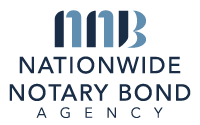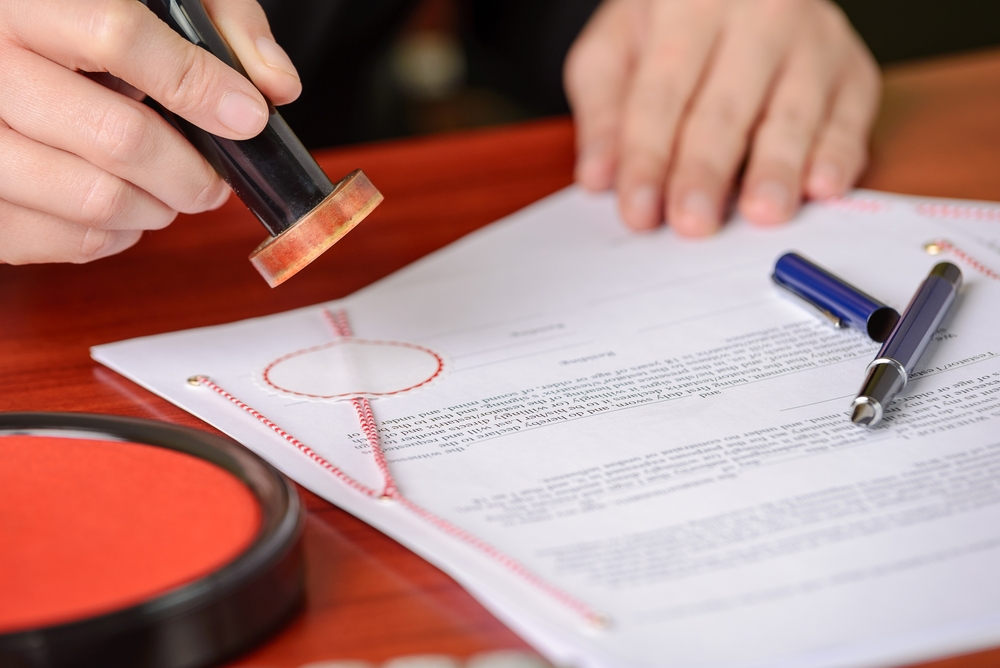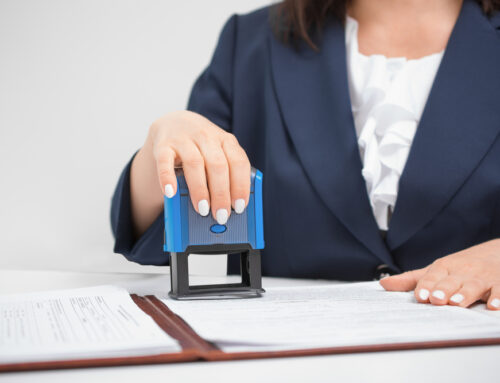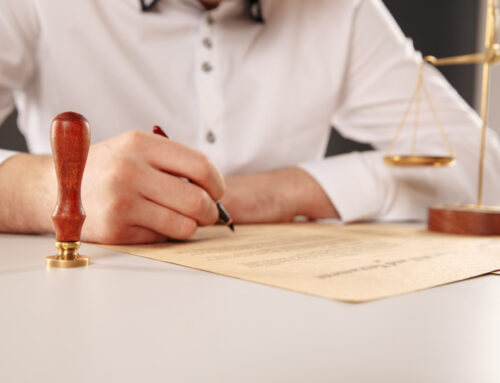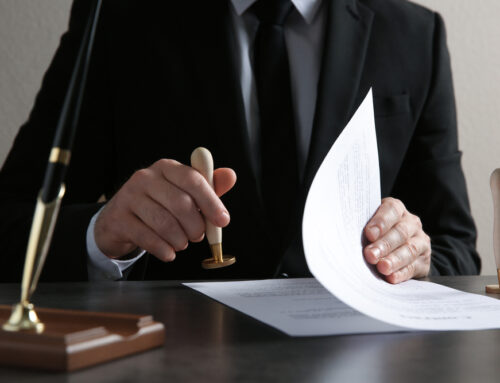Notarization is a process by which a notary public certifies that important documents are genuine and have been signed properly. A notary public is an individual the state has officially appointed to verify the identity of those who sign documents, administer oaths and affirmations, take acknowledgments of deeds, and perform other duties as required by state law.
Notary publics are found in many places, including banks, government offices, law offices, and businesses that require signatures on important documents. A notary public’s signature proves that a credible witness has witnessed any document they have signed.
In this article, Nationwide Notary Bond Agency discusses five crucial steps to proper notarization.
Require Appearance in Person
The signer must physically appear before the notary public when the notarial act is performed. In a personal appearance, both the signer and the notary public are physically present in the same location, within reasonable hearing and speech distances.
As a result, a notary public is prohibited from doing the following:
- Accept the word of another that a particular signature appears to be that of the purported signer
- Trust the notary’s knowledge of the signer’s identity
- Carry out a notarial act through telephone, email, teleconference, or other electronic means of communication
Additionally, if a document is notarized without the signer present, it completely undermines the intent of the process.
Examine the Document
Notarization is not a guarantee of the accuracy or authenticity of the document. Instead, it ensures that a notary has witnessed the document’s signing and can testify to its validity if necessary.
If you become a notary, it’s important to remember that notaries are not responsible for the accuracy of the information in the documents they notarize, but they must examine each document thoroughly before signing it. When a document is presented to a notary for notarization, the notary should first visually inspect it to ensure it is complete and free of errors and to see if a notarial certificate or other instructions are already printed.
Notaries who keep notarial diaries should also perform a digital document scan to collect and record pertinent data.
Determine the Identity of the Signer Carefully
When performing notarial acts, a public notary has a legal obligation to take every reasonable precaution to ensure the signer is who they claim to be. A notary public in most states can confirm a signer’s identity using one of three methods:
- Confirmation of identity by personal knowledge
- Confirmation of identity by Government-issued identification cards
- Confirmation of identity by a sworn statement of a credible witness
If you have doubts about the signer’s identity, do not notarize the document until you are satisfied with the identification. If you are unsure whether a person is who they claim to be and require additional verification, ask them for additional information, such as their date of birth or other identifying information. However, these steps may not always be necessary, depending on your state’s laws and regulations.
Fill Out the Notarial Certificate
Every time a notary public attests to the authenticity of a paper document, they must fill out a notarial certificate. Another requirement in many jurisdictions is that the notary notes the identification form used to identify the signer positively. Again, you should check the laws in your state to see what information must be included in a notarial certificate.
Document Your Journal Entry
A notary’s journal records all notarizations performed, and many states mandate its use. However, even in those jurisdictions where keeping a journal is not explicitly mandated, notaries are often advised to do so by state authorities. It is possible to purchase a journal from the American Association of Notaries or office supply stores.
Different states have different requirements for what must be recorded in the notary journal. However, the notary must record the time and date of the signing, the nature of the act performed, a description of the document, the signer’s name just as it appears on the document, and the form of identification presented.
Additionally, the notary’s journal is the best weapon against allegations of improper conduct. Before carrying out a notarial act, a notary public should make a suitable entry in the notary record book. No other notary public can access or use the notary’s official record book. The public may review the notary’s journal in states where such records are considered public. A notary’s journal is private in some jurisdictions. Regardless, a notary should take reasonable precautions to protect the journal from being misplaced, destroyed, or stolen. After using a journal, put it away somewhere secure.
Importance of Proper Notarization
Notary publics are a crucial part of the legal system. They are impartial witnesses to major life events, such as births and deaths, business transactions, and contracts. Notaries can also notarize international law documents, including passports, birth certificates, and marriage certificates.
Since they are responsible for witnessing such important moments in people’s lives, notaries must follow proper procedures when performing their duties. Their state government must properly license notary publics before they can perform any of the duties associated with notary publics. A person may not become a notary public unless commissioned by the governor or other authorized official in each state where they wish to practice this profession.
Conclusion
Notarization is an essential part of the legal process. It ensures that documents are legitimate and allows parties to a contract to ensure that their signatures are authentic. Notaries should also ensure that all parties understand what they’re signing and why it’s important.
When you need assistance becoming a notary, renewing your commission, or receiving notary education, contact us at Nationwide Notary Bond Agency, a bonded and licensed notary service. They will give you the tools you need to succeed in the competitive field of notarial services.
